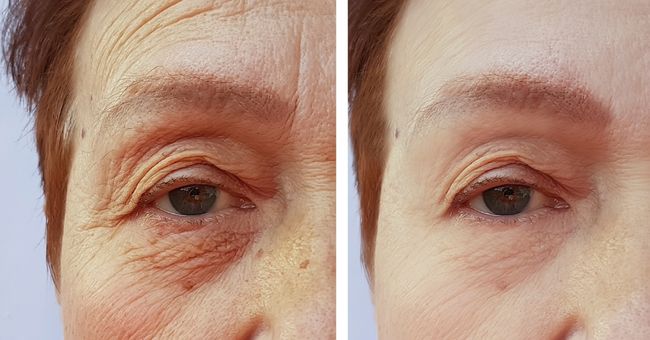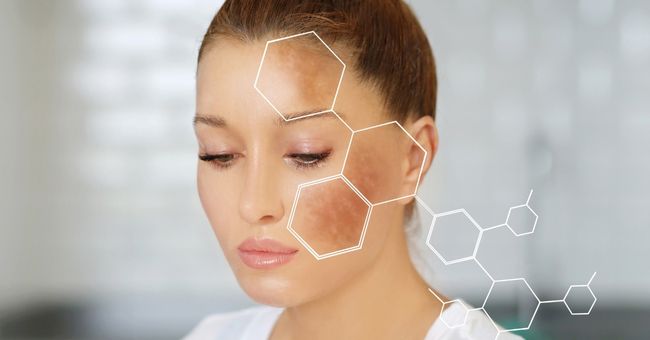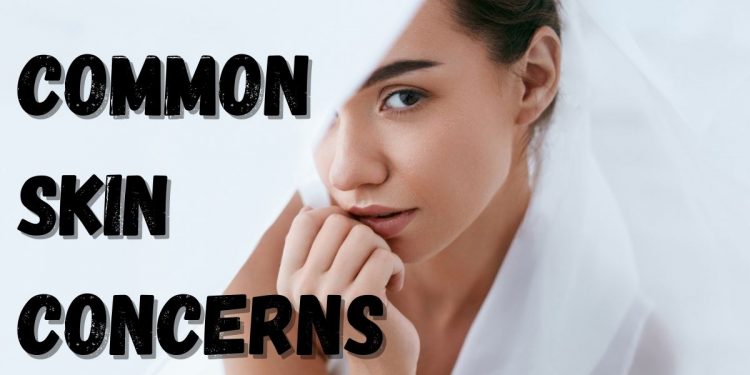Skin concerns are a common issue that many individuals face in their daily lives. These concerns can range from minor issues such as dryness and oiliness to more severe conditions like psoriasis and eczema. Skin concerns can not only affect one’s physical appearance but can also impact their mental well-being and confidence.
Various factors can contribute to skin concerns, including genetics, diet, lifestyle, and environmental factors. For instance, poor nutrition, exposure to pollution and harmful UV rays, and stress can all contribute to skin concerns. Moreover, certain medical conditions and medications can also cause skin concerns.
While some skin concerns may be temporary and easily managed with lifestyle changes and over-the-counter products, others may require medical attention and ongoing treatment. Seeking professional advice from a dermatologist can provide a proper diagnosis and treatment plan for those who are struggling with persistent or severe skin concerns.
Overall, understanding common skin concerns and their causes can help individuals take preventative measures and seek appropriate treatment to maintain healthy and radiant skin.
SOME OF THE MOST COMMON SKIN CONCERNS
Certainly, there are a variety of skin concerns that people may experience at some point in their lives. Here are some of the most common skin concerns, along with brief details about each one:
Acne:
Acne is a common skin condition that affects people of all ages. It occurs when hair follicles become clogged with oil and dead skin cells, resulting in pimples, blackheads, and whiteheads. Also, Acne can be mild, moderate, or severe, significantly impacting a person’s self-esteem.

Acne causes;
Moreover, Acne is caused by a variety of factors, including hormonal changes, genetics, stress, and certain medications. It can also be triggered by certain foods and lifestyle factors, such as a high-sugar diet, smoking, and lack of sleep.
Treatment for acne;
Acne treatment may include topical medications, such as benzoyl peroxide and salicylic acid, as well as oral medications, such as antibiotics and isotretinoin. In some cases, a combination of treatments may be necessary. In addition, adopting a skincare routine that includes gentle cleansing and moisturizing can help prevent acne breakouts.
Eczema:
A chronic skin condition known as eczema is characterized by dry, itchy, and inflamed skin. A combination of genetic and environmental factors often causes it, and stress, allergies, and other irritants can trigger it. One can manage eczema with a combination of lifestyle changes and topical or oral medications.

Symptoms of eczema
The symptoms of eczema can range from mild to severe, and they can be different for each person. Some common symptoms include red, itchy, inflamed skin, and dry, scaly patches.
Treatment for eczema
The Treatment for eczema may include a combination of lifestyle changes and medications. For example, it is important to keep the skin moisturized and to avoid triggers that can cause flare-ups, such as harsh soaps and detergents. In addition, topical medications such as corticosteroids and calcineurin inhibitors can be used to reduce inflammation and itching. In more severe cases, oral medications or light therapy may be necessary.
Rosacea:
Rosacea is a chronic inflammatory skin condition that primarily affects the face. Also, Rosacea is characterized by redness, flushing, and small, pus-filled bumps. One can trigger it by a variety of factors, including sun exposure, spicy foods, alcohol, and stress.

Symptoms of rosacea
The symptoms of rosacea can vary from person to person, including facial redness, bumps and pimples, and visible blood vessels. The eyes may also be affected in some cases, causing redness and dryness.
Treatment for rosacea
The Treatment for rosacea may include topical medications, such as metronidazole and azelaic acid, as well as oral antibiotics. In addition, lifestyle changes, such as avoiding triggers and using gentle skin care products, can help manage symptoms.
In some cases, laser or light therapy may be recommended to reduce redness and visible blood vessels. It is important to work with a dermatologist or other qualified healthcare provider to develop a treatment plan tailored to your needs.
Psoriasis:
Psoriasis is a chronic autoimmune skin condition that causes the rapid buildup of skin cells. This results in thick, scaly patches of skin that are often red and itchy. Psoriasis can be managed with a variety of treatments, including topical creams, light therapy, and oral medications.

Psoriasis is a chronic autoimmune skin condition that causes the rapid buildup of skin cells. This results in thick, scaly patches of skin that are often red and itchy.
Cause of psoriasis
Though the exact cause of psoriasis is not fully understood, it is believed to be related to an immune system dysfunction that causes the skin cells to grow too quickly. Certain factors, such as stress, infections, and certain medications, can trigger or worsen psoriasis.
Treatment of Psoriasis
Psoriasis treatment may include topical medications, such as corticosteroids and vitamin D analogs, as well as oral medications, such as biologics and methotrexate. Additionally, one may use light therapy to reduce inflammation and slow the growth of skin cells.
It is important to work with a dermatologist or other qualified healthcare provider to develop a treatment plan tailored to your needs. With proper management and treatment, it is possible to reduce symptoms and improve the quality of life for people with psoriasis.
Skin Cancer:
Skin cancer is the most common type of cancer in the United States. It occurs when abnormal cells grow uncontrollably in the skin. There are three main types of skin cancer: basal cell carcinoma, squamous cell carcinoma, and melanoma. One can prevent skin cancer by protecting the skin from the sun’s harmful rays and performing regular skin checks.

Wrinkles and Fine Lines:
Wrinkles and fine lines are a natural part of the aging process. They occur as the skin loses elasticity and collagen, which are proteins that keep the skin firm and smooth. Other factors that can contribute to the development of wrinkles and fine lines include sun exposure, smoking, and genetics.

Treatments available for wrinkles and fine lines
There are several treatments available for wrinkles and fine lines. Topical creams and serums that contain ingredients like retinol and hyaluronic acid can help improve the appearance of fine lines and wrinkles by promoting collagen production and hydrating the skin.
One can use injectable treatments, such as Botox and dermal fillers, to reduce the appearance of wrinkles and fine lines. Botox works by relaxing the muscles that cause wrinkles, while dermal fillers add volume to the skin to smooth out wrinkles and fine lines.
Additionally, one can use laser therapy to stimulate collagen production and improve the overall texture and tone of the skin. It is important to work with a qualified healthcare provider to determine which treatment option is best for you based on your individual needs and goals.
Hyperpigmentation:
Hyperpigmentation is a common skin concern that occurs when the skin produces too much melanin. This can result in dark spots or patches on the skin. A variety of factors, including sun exposure, hormonal changes, and certain medications, can cause hyperpigmentation. Topical treatments and laser therapy can manage it.

Treatment for hyperpigmentation
The Treatment for hyperpigmentation may include topical treatments, such as hydroquinone
These are just a few of the most common skin concerns people may experience. If you have concerns about your skin, it’s always a good idea to consult with a dermatologist or other qualified healthcare provider
In conclusion
Overall, Skin concerns are a common issue that can range from acne and dry skin to more severe conditions such as psoriasis and eczema. Factors such as genetics, diet, lifestyle, and environmental factors can contribute to skin concerns.
To prevent and manage skin concerns, individuals should maintain a healthy diet, stay hydrated, and protect their skin from UV rays. Proper care and attention can manage many skin concerns, allowing individuals to feel more confident and comfortable.















































